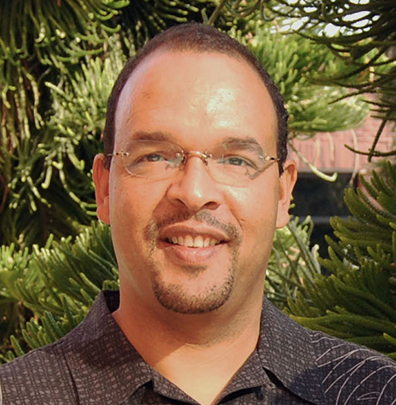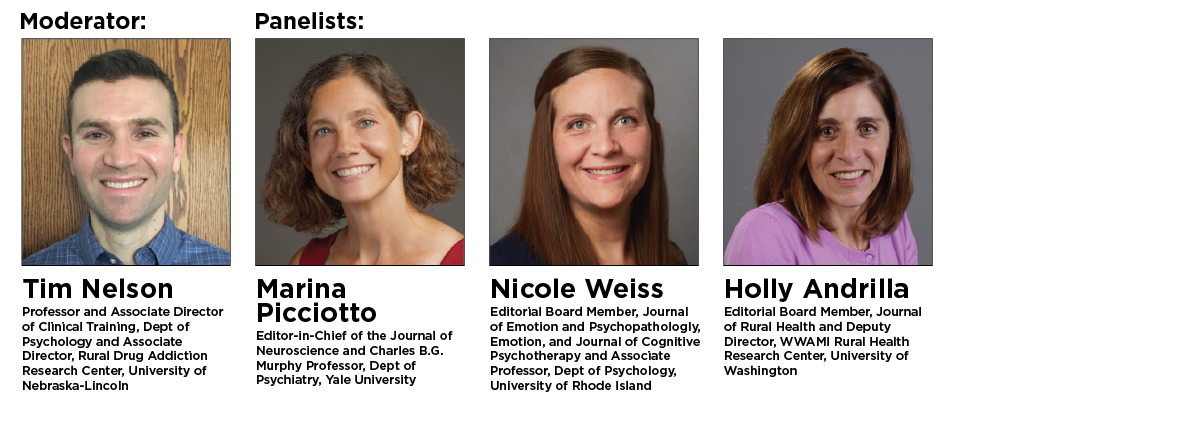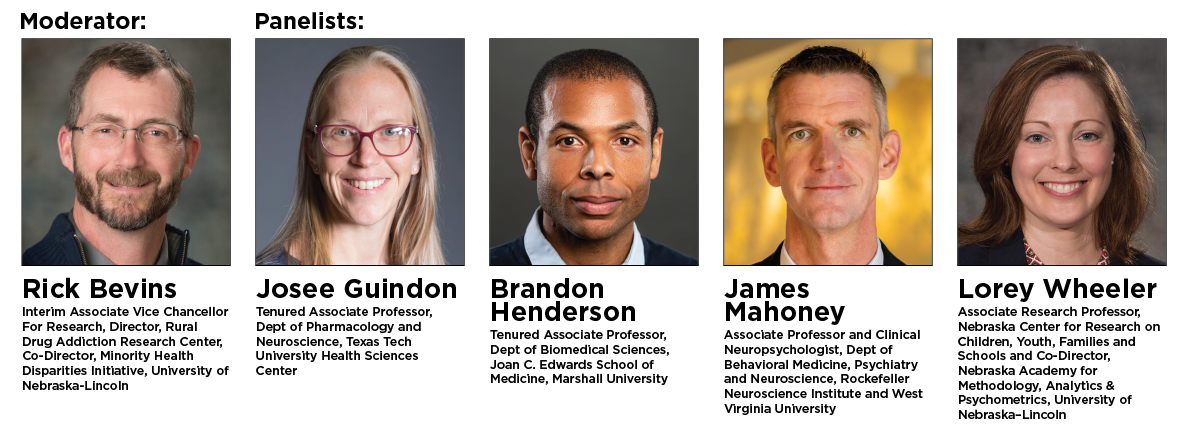November 8-10, 2022
Virtual 2022 Symposium on Substance Use Research

About the Symposium
The 2022 Symposium on Substance Use Research (SOSUR) will focus on leveraging research, knowledge, and insight on substance use from across the country. It will be held November 8-10, 2022 via Zoom. The virtual format will include expert keynotes, panels, and research presentations on a wide variety of substance use topics (see below for the agenda.) There is no cost to attend and it is open to the public.
2022 SOSUR will be co-hosted by:
- the Rural Drug Addiction Research (RDAR) COBRE
- the COBRE on Opioids and Overdose
- the West Virginia Clinical and Translational Science Institute (WVCTSI)
- the West Virginia INBRE (WV-INBRE) at Marshall University
- the COBRE Center for Addiction and Disease Risk Exacerbation (CADRE) at Brown University
About our Partnership

In September 2019, two newly funded COBREs (the COBRE on Opioids and Overdose at Rhode Island Hospital and the Rural Drug Addiction Research COBRE at the University of Nebraska-Lincoln) began small efforts to collaborate with one another, with the intention of increasing access to research around substance use and addiction science more broadly. This started with phone calls between Center PIs and administrators and quickly expanded to shared programming, as we saw synergies across almost all areas of our work. Our early goal to share information across COBREs has grown into a significant partnership that includes hosting joint seminars, events, workshops, trainings, and our annual symposium.
During the organization of our first virtual symposium in 2020, a third collaborator emerged and the symposium expanded to include the expertise and support of an IDeA-CTR: the West Virginia Clinical and Translational Science Institute (WVCTSI). In planning for our second virtual symposium in 2021, the COBRE for Addiction and Disease Risk Exacerbation (CADRE) at Brown University and the West Virginia INBRE joined as symposium sponsors. Their addition expanded our efforts to include all three types of IDeA-funded programs and increased opportunities to collaborate on substance use-focused research and intervention development across our institutions. We are excited to announce that the 2022 Virtual Symposium on Substance Use Research will again include participation from these five partners.
We are appreciative to all of the faculty, staff, and students who have contributed to this joint endeavor and who have engaged in this knowledge-sharing effort. We hope that this partnership will increase future collaborations across our programs and continue to grow our collective memberships as we build on the resources and expertise that the COBRE, CTR and INBRE programs provide. We look forward to expanding these partnerships, as we grow our successful IDeA-State collaborations with other centers across the US in the coming years.
The Symposium Agenda
Pre-Symposium Activities: Tuesday, November 8th
12:30pm – 1:30pm CT (1:30pm – 2:30pm ET)
Pre-Symposium Workshop: Grant Writing Tips and Q&A with Experienced Investigators
The panel will discuss writing strategies, understanding all components of a Research Funding Proposal (RFA), how to approach a program officer with questions, and other aspects of preparing a grant proposal.

Day One: Wednesday, November 9th
9:00am – 10:00am CT (10:00am – 11:00am ET)
Keynote 1:

Michael Taffe, PhD | "An Update on Racial Inequities in NIH Grant Funding"
This keynote presentation will overview the persisting disparity in NIH grant award funding, that leaves proposals submitted by Black Principal Investigators at a substantial disadvantage. The talk will address how this has been shown to lead to a disparity in which topics of research are funding and how this may contribute to the underfunding of research on critical health questions that are of interest to non-majority populations. Dr. Michael Taffe is a Professor in the Department of Psychiatry and the Skaggs School of Pharmacy at the University of California, San Diego.
10:30am – 11:30am CT (11:30am – 12:30pm ET)
Rapid-Fire Poster Session
This will be an energetic, fast-paced session showcasing a multitude of projects in substance use research. To view a full list of the poster presentation titles and presenters, click here.
12:30pm – 1:30pm CT (1:30pm – 2:30pm ET)
Panel Discussion on How to Publish a Journal Manuscript
The panel will discuss how best to prepare your manuscript for review, select relevant journals, respond to feedback during the peer-review process, and ways to increase efficiency throughout the process.

Day Two: Thursday, November 10th
9:00am – 10:00am CT (10:00am – 11:00am ET)
Keynote 2:

Yasmin Hurd, PhD | "Neurobiological Pathways to Addiction to Drive Novel Treatment Interventions"
The continued opioid epidemic highlights the important need for the development of novel non-addictive, non-opioid medications. This talk will provide molecular knowledge gained from post-mortem studies of human heroin users and complementary mechanistic animal studies that identify specific epigenetic and glutamatergic signaling marks that may offer druggable targets for opioid use disorder. Moreover, the talk will consider preclinical and clinical translational studies of CBD being considered for the treatment of opioid use disorder. Dr. Yasmin Hurd is a Professor of Psychiatry and the Director for the Addiction Institute at the Icahn School of Medicine at Mount Sinai in New York.
10:30am – 11:30am CT (11:30am – 12:30pm ET)
Short Research Presentations
To view a full list of our Short Research Presentation titles and presenters, click here.
12:30pm – 1:30pm CT (1:30pm – 2:30pm ET)
Panel Discussion on Promotion and Tenure
This panel discussion will focus on the promotion and tenure (P/T) process for basic science and clinical faculty engaging in addiction research.

This event is supported by the Rural Drug Addiction Research COBRE at the University of Nebraska-Lincoln [P20GM130461], the COBRE on Opioids and Overdose at Rhode Island Hospital [P20GM125507], the West Virginia Clinical and Translational Science Institute [5U54GM104942], the WV-INBRE at Marshall University [P20GM103434], and the COBRE Center for Addiction and Disease Risk Exacerbation at Brown University [P20GM130414]. All are funded by the National Institute of General Medical Sciences of the National Institutes of Health.
This content is solely the responsibility of the authors and does not necessarily represent the official views of the National Institutes of Health.